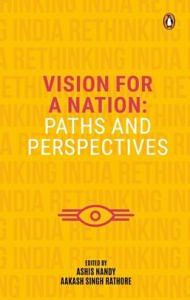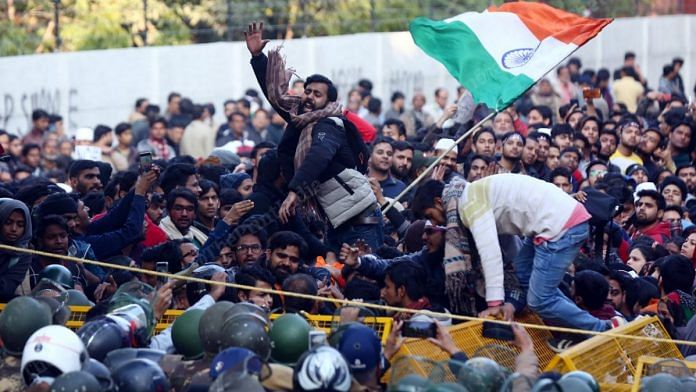Hatred is hot; it rallies crowds, and it tends to motivate more people more passionately than love and other such positive, but colder, concepts. Similarly, religion rallies more vehemence, and weaponizable obedience, than secularism ever will. Just the same, nationalism is hotter than constitutional patriotism, which is a much colder notion.
The true challenge that faces us is this heat, this passion, emotion, which always falls naturally towards the right. We thus find ourselves fighting against the currents of natural passions when we seek to ignite mass support behind inclusive constitutional ideas as opposed to exclusive ethno-nationalist ones. Can cold constitutional values such as fraternity, secularism and liberty ever quell the rage that hatred and nationalism have fomented on the streets, and chill this propensity towards violence?
Love, for example, even tolerant inclusion, is extremely difficult to vernacularize. And yet we have no alternative other than vernacularizing our basic constitutional values, of championing sadbhavana (goodwill), ahimsa, and a related basket of concepts that may contain more heat, more passion. It is a tall order to make fraternity and love politically organic, but inclusive concepts— ideological and not ethno-racial—must occupy the mental and spiritual space currently monopolized by exclusive ones.
Also read: Modi-Shah’s hyper-nationalism is making India insecure when it is actually most secure
Reimagining our communities
In Imagined Communities, Anderson, despite his multifaceted critique of nationalism, grants it the potentiality to project a utopian ideal that can bring peoples together: ‘regardless of the actual inequality and exploitation that may prevail in each, the nation is always conceived as a deep, horizontal comradeship. Ultimately it is this fraternity that makes it possible, over the past two centuries, for so many millions of people, not so much to kill, as willingly to die for such limited imaginings.’
In a certain sense, Anderson’s alarm over nationalism concerns more the content of it than the concept of it. That is, the tendency—especially true in India—is to pack the content of national belonging with exclusivist rather than inclusivist notions. Is it possible to retain the hot rubric of nation as a rallying concept but fill its content with the colder constitutional liberal and inclusive values? Generally, liberal-minded and left-leaning scholars posit that constitutional patriotism alone can adequately promote the interests of everyone. Twenty-first-century elections around the globe, and within India for certain, seem to belie that claim.
Constitutional patriotism is a modern concept anchored in the salience of the nation-state, offering the sugar-substitute of state-nation. What is sought is to imitate the affective capacity of the exclusivist orientation of nationalism with an equally affective enthusiasm for the state. The problem is, however, that it seems to depend upon imaginings as ahistorical and fuzzy as nationalism itself. For example, in The Discovery of India, Jawaharlal Nehru suggests that India was a nation in the making throughout the annals of history despite the fact that there was no such political entity as India before the Constitution. In other words, the secular and liberal values instantiated in the Constitution were constructed as valuable and viable in terms of a hoary—but indeed historically ambiguous—cultural legacy.
In this way, Nehru himself took recourse to classic tropes of nationalism, evoking elements of race, territory, history, culture and so on, in order to stabilize his alternative to nationalism.
Ever since Savarkar’s Hindutva: Who Is a Hindu, which was reiterated and perversely martialized in Golwalkar’s We or Our Nationhood Defined, the saffron sense of nationalism has had a peculiarly modern, nineteenth-century character, feigning to resurrect tradition in five specific categories: language (on the one hand the sacralization of Sanskrit, on the other hand the imposition of Hindi), ethnicity/race (hence all the fuss and controversy surrounding the Aryan hypothesis), religion (the construction of a muscular Hinduism with the Gita as its holy book and Advaita Vedanta as its theology), territory and culture. Hence their call for ‘Hindi, Hindu, Hindustan’!
Also read: To save the republic, India must read these books in 2020
Then what lies ahead?
What does the future of India look like—what ought it to look like? Can we share a broad-based consensus rooted in our expansive constitutional values? Or will the cheap seduction of saffron nationalism continue to erode our commitment to individual dignity as the necessary condition for the unity of the nation?
It is a truism that India enjoys (or should we still say ‘suffers from’?) enormous variation in social, ethnic, religious, linguistic, cultural and historical realities. The challenge, here, is whether it is possible to transform this fact of pluralism into a value that is appreciated on the ground, appreciated not amongst likeminded progressives such as ourselves, but by everyday people, by the rightward leaning, by the youth.
Nationalism of some sort seems our only available option for promoting solidarity out of this variegation. And what about the content of these conceptions of the nation and nationalism—which ideas of India would be the ideas that we champion? Let’s think for a moment towards the future: what is the legacy that we would wish to leave behind, what kind of India should we bequeath to the future generations? We ought to look beyond the present march of irrationality and focus on thinking long-term. But what of the youth now?
It is often said of the youth in India today that they have become alienated from our founding values, that they prefer efficiency and opportunity to democratic freedom; indeed, it is suggested that the youth today would gladly opt for a Chinese model where economic prosperity is readily available over Indian democracy. However that be, we must not abandon these youth or segments of the middle-class who may share this preference for prosperity over liberal, foundational freedoms. We must win them over. Human nature craves certitudes. Lack of certitudes forces people to fall back upon prejudices.
We have enjoyed a galaxy of certitudes in the past: the nation-state, development, secularism, democracy and so on. Whereas these concepts have been hijacked by regressive forces, they are not ideas that we can abandon. Rather, we must rearticulate these fundamental values in terms accessible to common people, average citizenry, and especially to the youth. Progressives have lost hold of these concepts. They need to be reclaimed, rearticulated, diffused on the ground level. We cannot give them up as our nation is founded upon them. But we can reinvigorate them for the current time. And we must. We need a revitalized vision for our nation.
 This excerpt from Vision For A Nation: Paths And Perspectives, edited by Aakash Singh Rathore and Ashis Nandy, has been published with permission from Penguin Random House India.
This excerpt from Vision For A Nation: Paths And Perspectives, edited by Aakash Singh Rathore and Ashis Nandy, has been published with permission from Penguin Random House India.




I don’t care about nation, identity or any other ‘certitudes’ I am all about criticism give me a theory & i shall deconstruct & destroy it, that’s all i like to do.